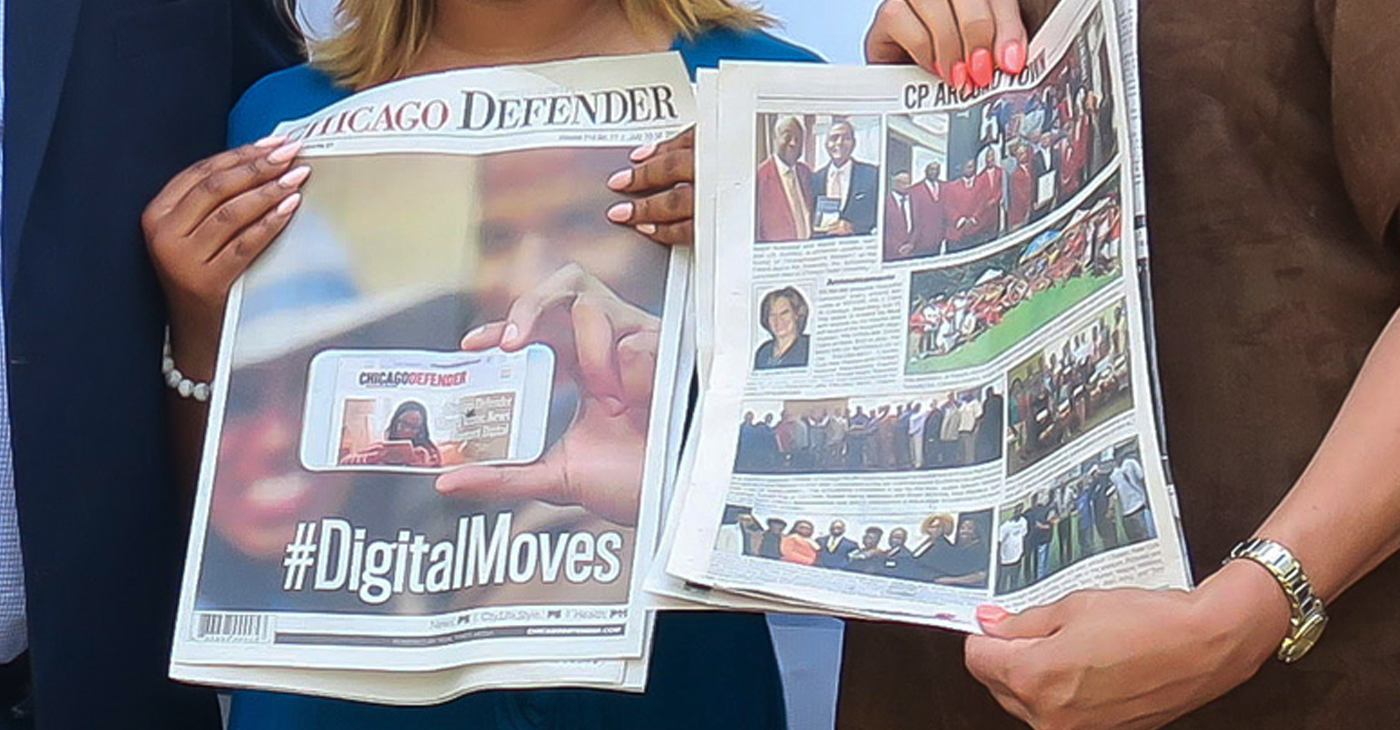Customers pick up final print edition of the Chicago Defender

By Tedarius Abrams, Sharon Joy Washington and Elae Hill
Wednesday, July 10 marked the final print edition of the historic Chicago Defender. At some Walgreens stores in the city, customers stopped in just to buy the iconic newspaper for one last piece of nostalgia.
The final print edition featured a picture of a hand holding a smart phone. The phone’s screen included an image of a woman looking at a table with the headline, “ChicagoDefender Moves Iconic News Content Digital.”
Mayor Lori Lightfoot took out a full-page ad in the final issue, thanking the Defender for its 114 years of service in its print edition.
“Very few publications have been as important to our community as the Defender” Lightfoot said in the advertisement. “The paper was the North Star for the Great Migration that brought the many generations of Chicagoans who made ours a world-class city.”
Once the largest African-American newspaper in the world, the Defender will move all of its content to its primary website for digital distribution.
Founded in 1905, the paper was designed to serve the interests of the Black community. It was a daily paper from 1956 to 2003 when it transitioned back to a weekly publication. As society progressed into the digital age the demand for the printed newspaper continued to lessen, causing the company to forgo its traditional spread.
Known as a leader in Black advocacy, the Defender accounts of life and opportunity in the North encouraged Blacks in the segregated South to come north during the Jim Crow era, inspiring what is known as The Great Migration.
Chicagoans shared their thoughts and concerns about the demise of the once highly regarded leader of the Black press.
The Crusader assigned staff members to the Walgreens at the Lake Meadows shopping center in Bronzeville, where they say some customers walked out of the store with a copy of the Defender. Some customers said ending the print edition was a good idea, others disagreed.
“It’s the biggest mistake. It’s cutting jobs and Black people depend on white people for everything,” said Eddie Muhammed, 90, of Ansonville, NC. But not all were as disappointed as Muhammed.
Some believe that the iconic newspaper will survive as a digital-only publication.
“I believe more people will have access to it now,” explained Daniel Ware, 39, of Chicago.
Many entered the drug store simply seeking to get their hands on the final printed edition of the Defender. “It’s sad that it also happened to Ebony and Jet.
I like to feel [something] when I’m reading. I like the paper in my hands, so I’m sad about it,” said Chicagoan Paul Ward, 78.
Reverend Jesse Jackson stopped by the Defender to provide his point of view. He discussed the many memories he had of the publication’s prime years and shared that he, too, is sad about this transition.
“I remember being in South Carolina to pick up the Defender and see stories on churches, events, models, news hard and soft. It was a training ground. Many great writers started at the Defender.
I respect the transition; I don’t feel good about it. I have such a tremendous respect about the Defender’s past, but I know that the digital release will expand its reach.”


